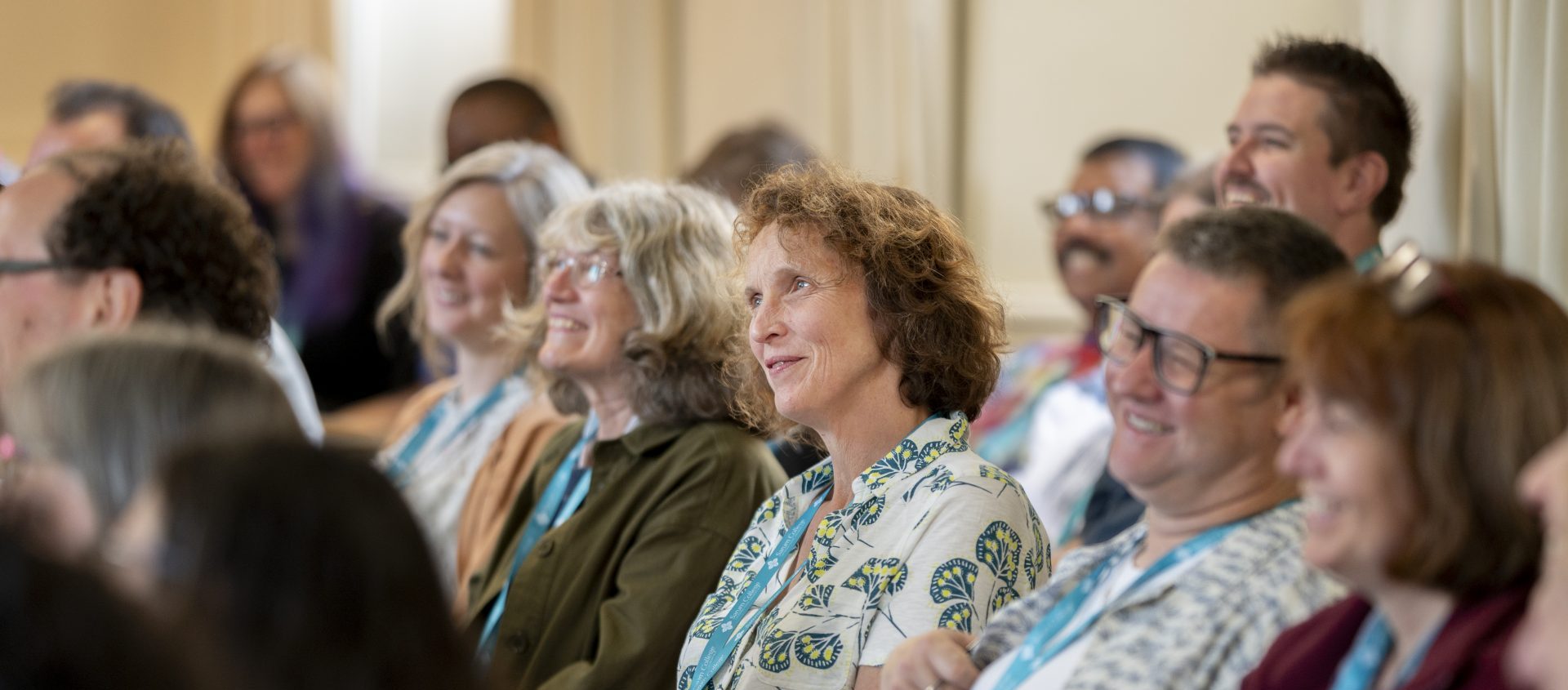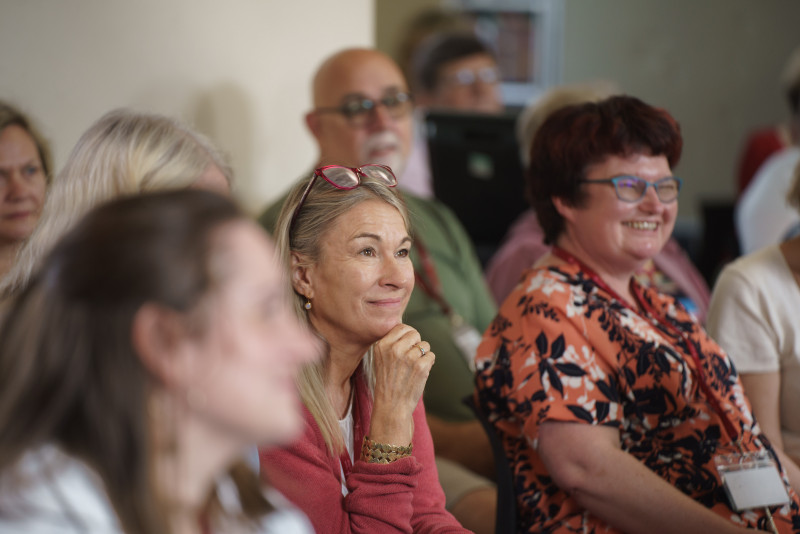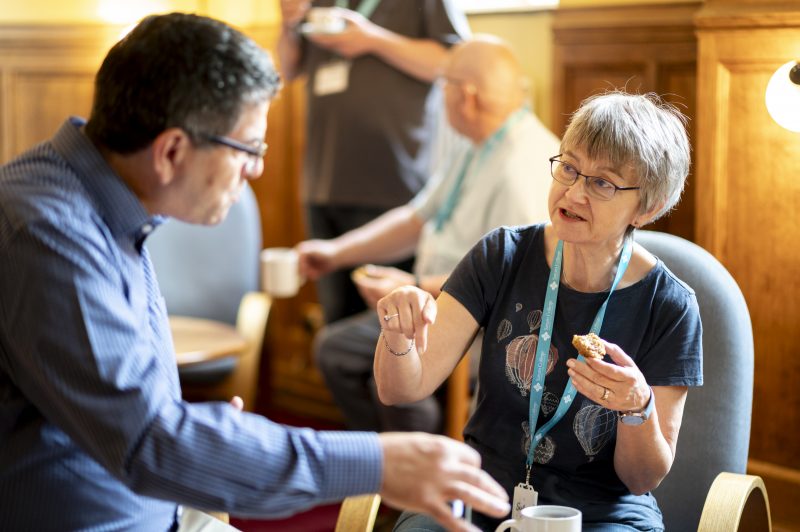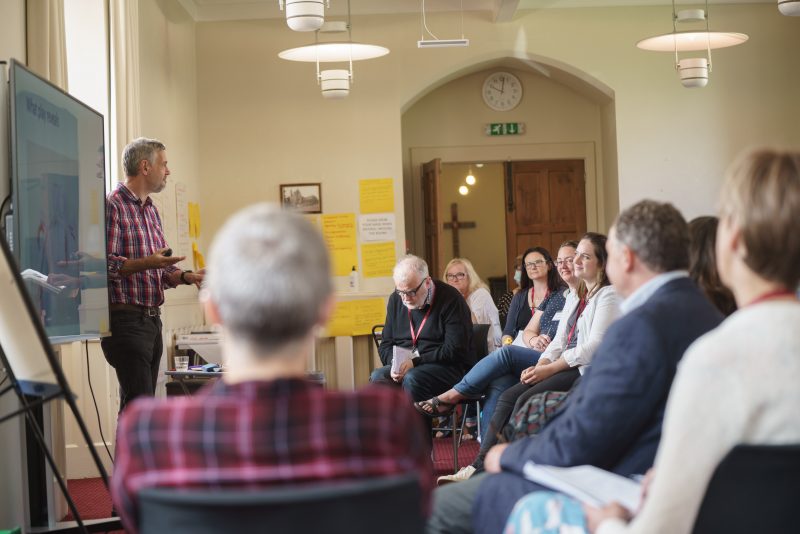- Courses
- Ministry Formation
- Stay, Meet & Eat
- Events Diary
- Join the mailing list
- Courses
- Ministry Formation
- Stay, Meet & Eat
- Events Diary
- Join the mailing list

'Elizabeth' pathway
For more mature candidates combining discernment with training over 2 years part time
Home Elizabeth Pathway
What the Elizabeth pathway is
This is a two year part-time pathway towards ordination as locally deployed Associate ministers for mature Christians with significant lay leadership experience.
We are one of a few colleges in the country piloting this pathway from September 2025, and we currently have 6 candidates on this pathway.
The distinctive feature of this pathway is that candidates will complete the Shared Discernment Process in the first year alongside training, whilst being funded for the training by the National Church. Candidates will take a Stage 2 discernment panel towards the end of their first year, and if recommended for training for ordination will proceed to the second and final year of training, again fully funded.
The Elizabeth Pathway is a partnership in the first year between dioceses and Sarum College. The discernment process is the responsibility of the individual dioceses, but Sarum College will support this through the learning and formation.


Who is eligible?
Candidates should normally be no more than 65 and must be no less than 53 years of age at the start of training. Candidates will show a willingness to fully engage with the pathway for their own development, learning and discernment, and will come with significant lay leadership experience. Candidates will be discerning for locally deployed Associate ministry.
We will ask for a written request from the Diocesan Bishop for a candidate to begin the Elizabeth Pathway, which will usually be through the Diocesan Director of Ordinands (or equivalent). Applications need to be made to us before 1 August before a 1 September start in training, preferably earlier to allow candidates to visit college and meet staff.
Candidates who present with existing theological qualifications will be considered on an individual basis, and it may be that a discernment year before commencing a pathway would be more appropriate.
A community learning together
The Elizabeth pathway follows the blended learning pattern common to all our part-time pathways.
Because of our modular pattern, residentials and modules (except one) are all shared with other candidates training for ordained and ReaderLLM ministries.
The best way to find out more is to come and see us. We will be pleased to welcome you on a visit to Sarum College at one of our Ministry Open Days or we can arrange an individual visit. Please contact jgallon@sarum.ac.uk to arrange.

Find out more
Award
Candidates begin with a Foundation Award (60 credits) in the first year, equivalent to the first 6 months of a degree course. On recommendation for training for ordination during the first year, candidates then proceed in the second year to build this to a Certificate in Higher Education (CertHE 120 credits). This is equivalent to the first 12 months of a degree course
Learning at college, at church and at home
You are supported in your training through our blended learning pattern. You learn in three ways:
In community – Residential Learning
We come together at residential weekends to share in the larger group, explore a rich diversity of traditions, and enjoy food and fellowship. A sense of community is quickly built up which continues through forums and social media when apart. Each student has a Personal Tutor, and all staff and the Chaplain are available for support and questions.
The residential weekends build on the module material in discussion and teaching to support your learning. We also build on formational learning in practical aspects of ministry and self-care, group work, and ongoing theological reflection. Weekends begin with evensong in the Cathedral, students lead worship in the College Chapel, and we often join local churches on the Sunday.
Those on a LLM/Reader pathway have some differences on residency, and should discuss the details with their Diocese.
Through experience – Learning in Context
Your learning throughout the course is grounded in practice. Your main context is usually (but not always) your home church. We set up a Training Supervisor for you, often the incumbent or pastor of your main context, who will meet regularly with you help relate your training to practice.
You explore mission and ministry in a different setting through a long placement module. This is stretching, but is arranged to accommodate work and family responsibilities. Recent placements include prison and hospital chaplaincies, different local church settings, and various cathedrals including in Africa.
Residential weekends on rural, urban and interfaith ministry themes contribute further engagement with different contexts and form part of the learning in community.
In depth – Personal Learning
Our online modules enable you to pursue your personal study at a time and place to suit you. These modules also incorporate practical and reflective activities and assignments.
This guided study contains a wealth of material, including reading activities, reflection and multimedia. You have online group tutorials through Zoom with the module leader, which is efficient with time and costs. Those who travel for work find this very helpful, allowing them to attend tutorials wherever they are.
You also apply what you learn by leading a regular ‘Local Learning Group’ of people, chosen by you, who come from your home context. These groups allow you to share learning with others wanting to support you.
Time Required
We work on an academic year that runs in the first year from 1 September to mid July, and in the second year from a residential Summer School for ordinands in the week before the August Bank Holiday to a finish at the beginning of June. The work is paced through the year, and a fortnight’s break is given at both Christmas and Easter in addition to the summer break. If there are emergencies such as sickness, staff are fully supportive in enabling the student to manage the situation and the work.
You will need to have somewhere quiet for study on a regular basis. You will also need a reasonable broadband connection and computer set-up that will allow you to use Zoom for tutorials.
If you train part-time
Part-time you will need to give approximately 16 hours a week to your study, to attend 6 residential weekends a year and in the second year the annual residential week in August for ordinands. In the first year you will have two extra Saturdays to attend, for induction and for safe-guarding training.
16 hours is an honest average that includes involvement in church on Sundays and other formational experience, together with the work required for study, tutorials and supervisions. We will work with dioceses to ensure that this also includes time needed for the discernment process. You will need to drop other existing responsibilities in church to make space for this. This is a commitment, especially for those in full time jobs, but it is manageable and worthwhile.
A great place to study
Sarum College enjoys the wonderful setting of Cathedral Close in Salisbury. During residentials students stay in the College’s comfortable single bedrooms, mostly en-suite.
Meals are cooked and served onsite, and the Common Room bar offers space for conversation to continue into the evening. We use the College Chapel for worship.
Teaching rooms are well equipped, including for live-streamed events. The library is well-stocked with access to a large catalogue of books and journals, and you can make use of it when you like. Some use the library outside of residential periods if they are passing for work or as a study day.
Staff support you pastorally and academically at college or at home, as well as teaching on the modules. Other experts supplement the teaching programme with specialist knowledge as required.
Fees
For Church of England Candidates
For Church of England candidates, your tuition fees will be paid for you by the central Church, as are your travelling expenses to and from Sarum College.
It is worth noting that if you wish to stay in College at times outside the residential periods of your course, for instance to give yourself an intensive study period, then this is possible at normal College B&B rates.
For DDOs
The Sarum College pathways are charged at the level anticipated by Ministry Division as the tuition costs per year for that pathway in the annual RME Handbook. Our Part-Time Pathways are charged at the Ministry Division tuition costs for a Regional Pathway per year. Travel expenses are kept to a minimum by using online seminars for teaching and tutorials between residential weekends at College. If you have questions about pathways and finances we will be happy to discuss these with you.
The Elizabeth pathway is only available to Church of England candidates
Sign up to our newsletter
Fill in and submit the form below and we'll add you to our mailing list for news about Sarum College.
"*" indicates required fields